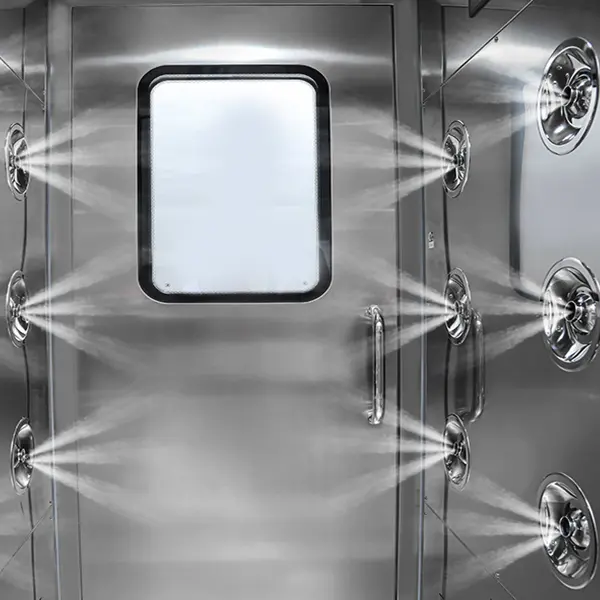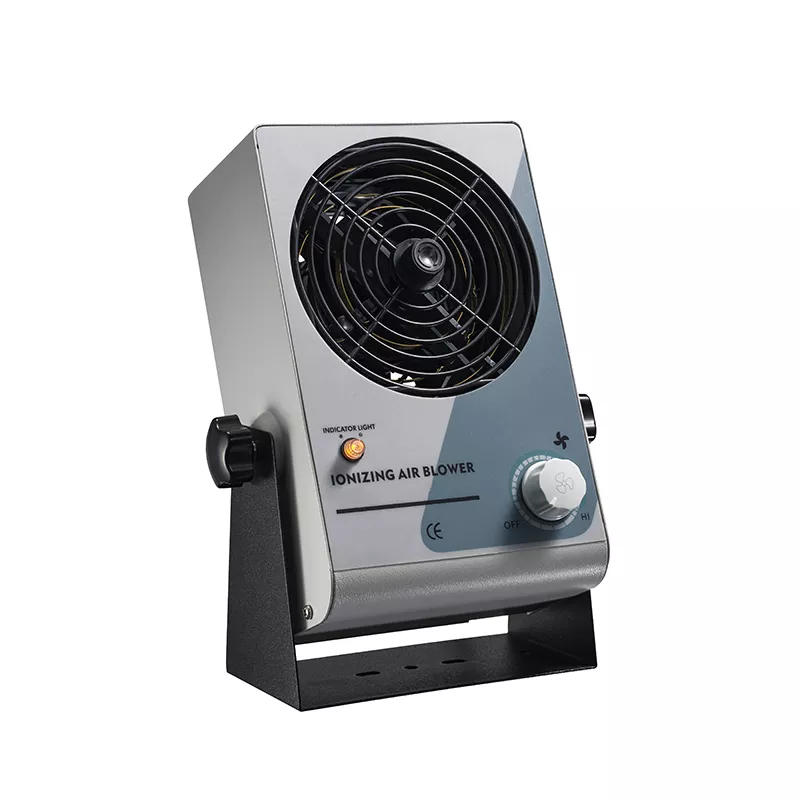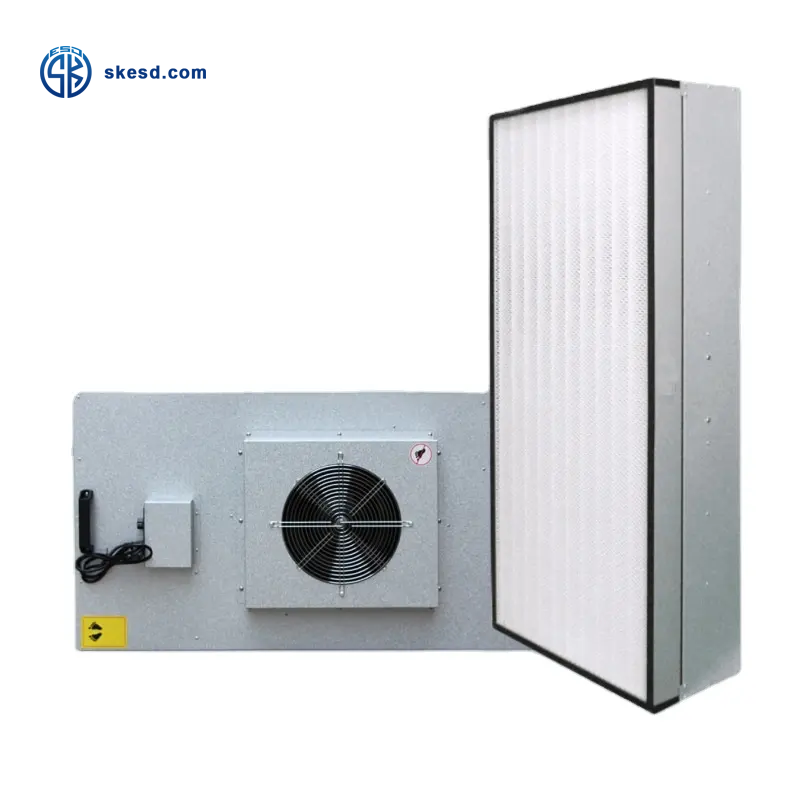Air showers are enclosed units designed to remove loose particles from individuals and objects before they enter a cleanroom. By utilizing high-velocity, filtered air, air showers effectively remove dust, dirt, and other contaminants that may cling to clothing or adhere to surfaces. These showers act as a gateway, preventing external pollutants from entering the cleanroom, ultimately safeguarding sensitive processes and products.
How Do Air Showers Work?
When an individual or object enters an air shower, a powerful blower system releases clean and filtered air through adjustable nozzles or showerheads. The high-velocity air creates a laminar flow, effectively dislodging and removing any particles from the surface being showered. These particles are then captured by the shower’s exhaust system, preventing them from entering the cleanroom environment.

Key Components of Air Showers
Air showers consist of several essential components that work together to deliver effective contamination control.
-
Air Shower Nozzles
The air shower nozzles are strategically positioned to produce a directed, high-velocity airflow. These nozzles efficiently blow away loose particles from individuals or objects, preparing them for entry into the cleanroom.
-
HEPA Filters
HEPA filters are critical components of air shower. They remove airborne particles and microorganisms, ensuring the cleanliness of the air flowing into the air shower. Regular filter maintenance and replacement are essential to maintain optimal performance.
-
Control Panel
The control panel allows users to operate the air shower and adjust settings according to specific requirements. It typically includes functions such as cycle timing, interlocking doors, and emergency stop buttons to ensure safe and efficient operation.
-
Sensors and Alarms
Air shower are equipped with sensors to detect malfunctions or abnormal conditions. These sensors trigger alarms to alert personnel, enabling timely intervention to address any potential issues.

Applications of Air Showers
Air shower find extensive use in industries where contamination control is critical. Some common applications include pharmaceutical manufacturing, electronics assembly, semiconductor fabrication, biotechnology research, aerospace manufacturing, and food processing. In these industries, air showers are an indispensable tool for maintaining cleanliness and ensuring the integrity of products or experiments.
The Benefits of Air Shower
Air showers offer numerous advantages in maintaining the cleanliness and safety of cleanrooms. Let’s explore some of the key benefits:
- Contamination Control: Air shower are highly efficient in removing particles, such as dust, lint, and microorganisms, from individuals and objects. This helps minimize the introduction of contaminants into the cleanroom, ensuring the integrity of sensitive processes and products.
- Enhanced Product Quality: By reducing the presence of contaminants, air showers contribute to improved product quality and reliability. They help prevent defects, malfunctions, or errors that can arise due to the presence of foreign particles.
- Worker Safety: Air shower not only protect the cleanroom environment but also safeguard the health and safety of personnel. By removing particles from clothing, hair, and exposed skin, air showers reduce the risk of contamination-related health issues and potential cross-contamination.
- Cost Savings: Implementing air shower can lead to significant cost savings by preventing product failures, minimizing rework, and reducing the frequency of cleanroom maintenance.
- Compliance with Regulations: Many industries, such as pharmaceuticals and biotechnology, must adhere to strict regulatory guidelines. Air shower help meet these standards by providing an effective contamination control mechanism.
- Improved Cleanroom Efficiency: With air shower in place, the frequency of cleanroom maintenance and cleaning can be reduced, leading to improved operational efficiency and productivity.
To ensure optimal performance and longevity, it is essential to use and maintain air showers properly. Personnel should be trained on the correct use of air showers, including appropriate attire and entry procedures. Regular cleaning of air shower interiors and nozzles is necessary to prevent buildup and maintain effectiveness.
continue reading




